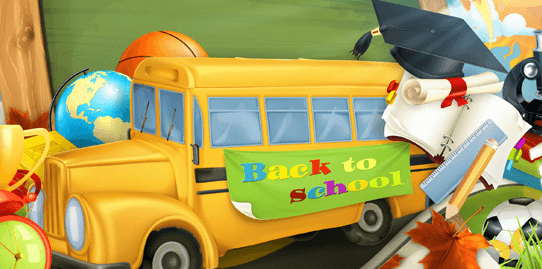clipart:_uexxcvpibu= school

Schools are essential pillars in society, acting as centers for both education and personal growth. They are crucial in nurturing young minds, preparing students to face future challenges, and instilling social skills and discipline. By providing a structured environment, clipart:_uexxcvpibu= school enable academic achievements and foster lifelong learning habits. The role of schools in shaping a community’s future is immense and irreplaceable.
Evolution of Education
The journey of education has transformed greatly from its early beginnings. Initially, basic literacy and numeracy were the primary focus, but as societies progressed, so did educational methods and content. The establishment of formal education systems and universities marked significant milestones. This evolution is vital in understanding today’s educational frameworks, highlighting how historical changes have influenced contemporary practices.
Different Types of Educational Institutions
Various educational institutions cater to a wide range of learning needs, including public, private, charter, and online schools. Public schools are government-funded and serve all students, while private schools often offer specialized programs. Charter schools provide innovative teaching approaches, and online schools offer flexibility for remote learners. Each type presents unique opportunities and challenges, addressing the diverse needs of students.
School Curriculum Overview
A school’s curriculum is a comprehensive guide that includes essential subjects such as mathematics, science, and language arts, along with a variety of electives like music and art. Additionally, extracurricular activities such as sports and clubs are integral to the curriculum, promoting holistic development. A well-balanced curriculum is key to fostering curiosity, critical thinking, and preparing students for future academic and professional endeavors.
Role of School Administration
School administration involves a team of leaders, including principals and vice principals, who manage the daily operations and long-term goals of the institution. Their responsibilities range from curriculum planning to overseeing staff and ensuring student welfare. Effective school administration is crucial for maintaining a positive and productive learning environment, ensuring that educational standards are met.

Teachers and Support Staff
Teachers and support staff are the core of any school, directly influencing the success and well-being of students. They bring a wealth of knowledge, dedication, and passion to their roles, guiding students through their educational journeys. The impact of skilled educators extends beyond academics, as they also play a critical role in shaping the social and emotional development of their students.
Creating an Effective Classroom Environment
The environment within a classroom plays a significant role in student engagement and learning outcomes. Well-organized, resource-rich spaces with access to modern technology enhance the learning experience. A positive and inclusive classroom atmosphere encourages student participation and fosters a sense of belonging, contributing to both academic success and personal development.
Read Also clipart:8ph6q0ltrde= horse
Student Life and Extracurricular Activities
Student life encompasses not only academic pursuits but also involvement in extracurricular activities such as sports, clubs, and social events. Participation in these activities helps students develop leadership, teamwork, and time management skills. A vibrant and active student life is essential for a well-rounded education, providing opportunities for personal growth and social interaction.
The Impact of Parental Involvement
Parental involvement is a key factor in a student’s academic success. Parents who actively participate in their child’s education by attending meetings, volunteering, and supporting learning at home contribute to a more supportive educational environment. Schools benefit greatly from strong partnerships with parents, which help to reinforce the connection between home and school.
Addressing Educational Challenges
The education system faces numerous challenges, including budget constraints, the pressures of standardized testing, and issues related to equity. These challenges can hinder the quality of education and the availability of resources. Addressing these issues requires collaborative efforts among educators, policymakers, and communities to ensure that all students receive a fair and effective education.
Embracing Educational Innovations
Innovations in education, such as the integration of technology and new teaching methods, are transforming the learning experience. These advancements cater to the diverse needs of students and make learning more engaging and interactive. By embracing innovative approaches, educators can better prepare students for the rapidly changing demands of the modern world.
Ensuring School Safety
School safety is of utmost importance, encompassing measures such as anti-bullying policies, emergency preparedness, and overall student well-being. Implementing these safety measures helps create a secure and supportive learning environment. Proactive efforts in ensuring safety build trust and confidence among students, parents, and staff, contributing to a positive school culture.
The Role of Schools in the Community
Schools serve as vital hubs within their communities, fostering partnerships and encouraging civic engagement through volunteer opportunities and events. These collaborations enrich the educational experience by providing additional resources and support. Strong ties between schools and their communities contribute to a thriving educational environment and promote a sense of shared responsibility.
Global Perspectives on Education
Exploring global education systems reveals a variety of approaches to teaching, curriculum design, and student assessment. These differences are influenced by cultural values and societal goals. Understanding these global perspectives provides insights into best practices and potential areas for improvement, fostering international dialogue on educational reform and innovation.
Common Questions About Schools
What makes different types of schools unique? Different schools offer varied curricula, teaching styles, and learning environments, each catering to specific student needs.
How does parental involvement influence student outcomes? Active parental involvement enhances student motivation and academic performance, creating a supportive learning environment.
What are the main challenges faced by schools today? Challenges include financial constraints, standardized testing, and ensuring equitable access to quality education.
How are educational innovations improving learning? Innovations such as technology integration and personalized learning experiences are making education more engaging and effective.
What role do schools play within their communities? Schools act as community centers, fostering partnerships, promoting volunteerism, and enhancing civic engagement.
Conclusion
clipart:_uexxcvpibu= school are central to shaping individuals and communities by providing education, fostering growth, and promoting lifelong learning. Their role extends beyond academics, encompassing social, emotional, and personal development. As education continues to evolve, schools remain critical in preparing future generations to navigate an increasingly complex world.






